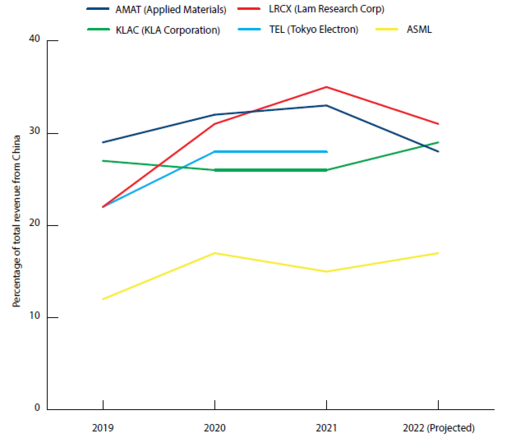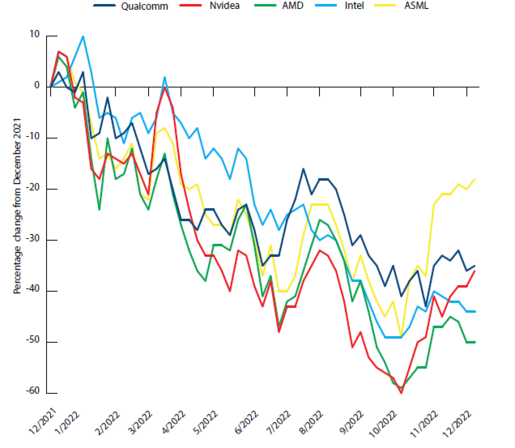A big win for the US strategy of constraining China's chip-making capabilities. But, in my view, this should not be seen as a major concession by Europe either: here's why... /1
RT @jordanschnyc@twitter.com
A real coup for the Biden administration. Hats off to everyone at State and Commerce who helped pull this together. https://twitter.com/jendeben/status/1618790250071101443
: https://twitter.com/jordanschnyc/status/1618957435179507712
First, for context, the biggest US (and Japanese) chip-making equipment manufacturers have a far higher proportion of revenue from China than Dutch powerhouse ASML has. This round of tighter US export controls should hurt America more than its allies... /2
Second, don't just look at the impact on chip-making equipment firms. Chip design firms are affected by the US strategy too. They are mostly American. Their share prices tanked in Oct when the US announced its strategy - and haven't rebounded as much as ASML has. /3
Finally, the US export controls are part of a broader decoupling exercise, in which many countries are subsidising new chip-making plants, which will all need the lithography machines ASML specialises in. ASML has massive opportunities ahead, with or without China. /4
There are still reasons to doubt the US strategy: eg, does it make sense to decouple while China still dominates many critical parts of tech supply chains? And would we benefit more from keeping China dependent on Western tech? /5
The US must be transparent with its allies about when it grants export licences in future, to show it is not using export controls to boost its own industries over Europe's. But, overall, the Dutch decision to fall in line with the US strategy does not disadvantage ASML. /6


